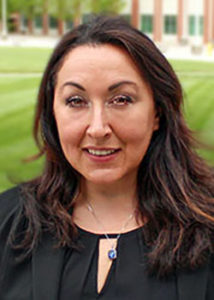 Modern society is highly dependent on rare earth elements (REEs) as discussed by Research Assistant Professor Deborah Penchoff, who also serves as the Associate Director of Innovative Computing Laboratory. Earlier this month, she gave a talk at the Howard H. Baker Jr. Center for Public Policy titled “Rare Earth Elements: Critical Materials, Dependence on Foreign Sources, and Effects on National Security.”
Modern society is highly dependent on rare earth elements (REEs) as discussed by Research Assistant Professor Deborah Penchoff, who also serves as the Associate Director of Innovative Computing Laboratory. Earlier this month, she gave a talk at the Howard H. Baker Jr. Center for Public Policy titled “Rare Earth Elements: Critical Materials, Dependence on Foreign Sources, and Effects on National Security.”
In her talk, Penchoff discusses the relevancy of REEs to the energy transition. She covers the history of how they are produced, where they come from and some solutions to their scarcity in the global supply chain.
For instance, throughout the 1990s, the US and China had similar productivity levels of REEs, but then China’s production began to skyrocket, and they became a near monopoly in REE production. Some of this had to do with lower restrictions China had on the separation process, which required environmentally unfriendly solvents. Then China began to restrict exports of REEs, which led the US to restart production.
Penchoff says that one of the main issues with production of REEs continues to be the separation challenges and making them environmentally friendly. The separation is a limiting factor to production, given the fact that the elements are surrounded by other elements.
“Researchers know that the global demand for technology and portable devices is only going to increase,” she said. “Consumer, medical, and defense applications are also expected to increase rapidly over the next decade.”
Some solutions or alternatives Penchoff cites include recovering REEs from coal ash byproducts, recycling REEs, optimizing the separation process to make it more green, and to find alternative materials that don’t require the use of REEs.
Note: Due to technical difficulties at the beginning of the talk, it is going to be re-recorded. Please check back for a link to the completed version of the talk.